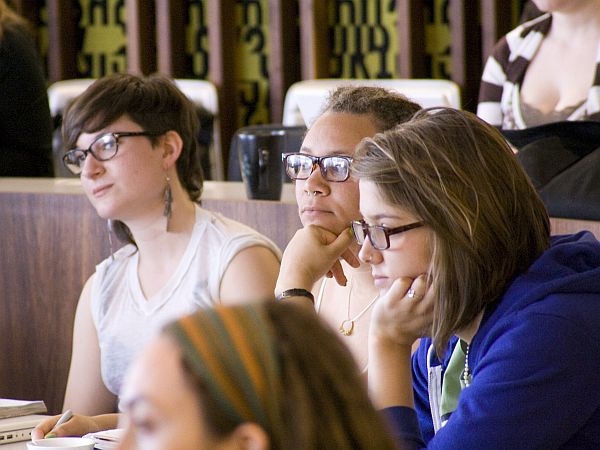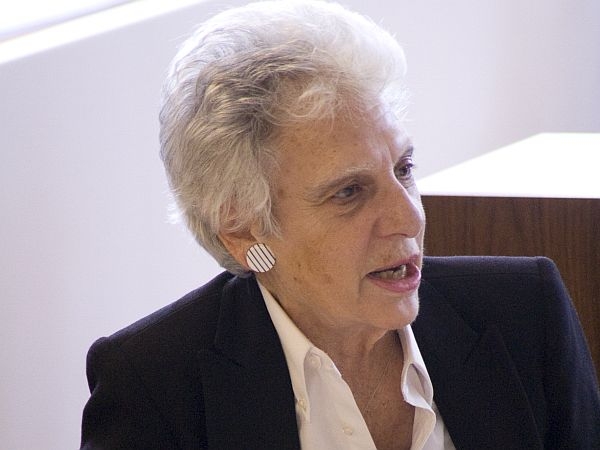
Bennington College’s new, $20-million Center for the Advancement of Public Action opened in September with an ambitious goal: to create an education focused on the world’s most pressing problems and the knowledge it will take to solve them.
The trio of low, rectangular buildings has an almost luminous exterior of marble blocks salvaged from Vermont quarries.
The Center for the Advancement of Public Action, or CAPA as it’s called, is dedicated to the idea that education should serve the public interest, and not just offer "majors" in various fields.
Bennington College President Elizabeth Coleman said complex problems such as hunger, poverty, climate change, don’t fit traditional academic categories.
"We’re talking about something that isn’t disciplinary," Coleman said. "We’re talking about the problems of the world. The world is not organized, despite the fact that we act as if it is, in a bunch of categories."
 CAPA is designed to involve leaders and visionaries who are working to effect change on many fronts around the world. The complex includes living quarters where visiting instructors can recharge from their work, interact with students and contemplate the really big questions
CAPA is designed to involve leaders and visionaries who are working to effect change on many fronts around the world. The complex includes living quarters where visiting instructors can recharge from their work, interact with students and contemplate the really big questions
A conference last month focused on global water issues. In dozens of events, visiting presenters discussed their projects — from water-sharing in the Middle East, to threatened Caribbean coral reefs, to a hydro dam in North Bennington.
At one point Coleman, the college president, brought a group of presenting experts together in CAPA’s symposium space — a high-tech, tiered amphitheatre with a table at the center.
Coleman told the group, "All of you are here at this table because you are to some extent committed to changing things for the better. In your experience do you have any where you have actually seen that happen? Where you can talk about what you have discovered about how things get done?"
One person at the table was Randie Denker, a 1972 Bennington graduate. Denker said she went on to law school to become an environmental crusader and fight pollution by big corporations.
"And the job I wanted did not exist," she said. "So I thought, ‘I’ll invent that job.’"
Denker studied the public records on Superfund Cleanup sites. She found a rural area in Florida where illegally dumped hazardous waste had poisoned people’s wells.
"So I talked to the neighbors," Denker said.
"And they said, ‘Nobody’s helping us.’ And I said, ‘Well, I happen to be an attorney.’ and I drove home and I had twelve families signed up."
Denker said the case took years. But it ended in a cleanup, a settlement for the neighbors, and new legal precedents. And it launched her career.
As the conversation continued, guests discussed the lessons and conundrums of their work. They interacted with the audience, which included participants in the introductory CAPA course taught by President Coleman.
The students in that class examined many different world problems. Later, they’ll choose one to pursue in depth, and a related field project.
CAPA students may study in any combination of disciplines with a focus on public action.
Bennington doesn’t grant degrees in specific subject areas. So, like all other Bennington grads, they’ll graduate as Bachelors of Arts, or Bachelors of Science.